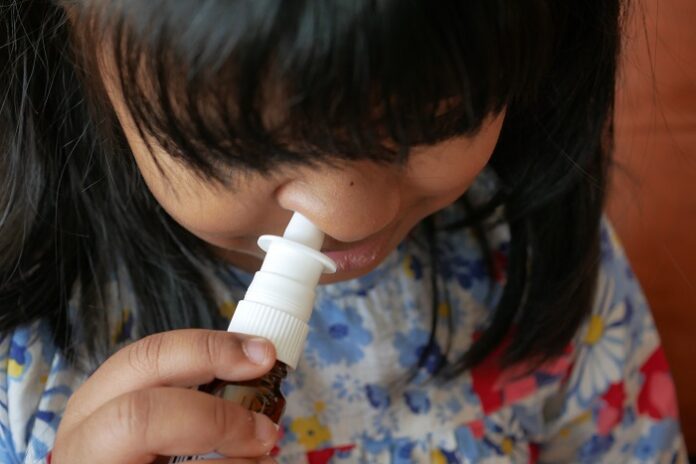A recent study funded by the National Institute for Health and Care Research (NIHR) has found that over-the-counter (OTC) nasal sprays can effectively alleviate the symptoms and shorten the duration of flu and colds in at-risk patients, potentially leading to reduced antibiotic use.
Evidence suggests that nasal sprays may decrease the frequency and severity of respiratory infections. The study also explored the impact of improving immunity through exercise and stress management. Researchers conducted a large-scale randomized trial to compare the effects of two different types of nasal sprays and an online resource offering guidance on physical activity and stress management.
Involving 13,799 adults from 332 GP practices, all participants had pre-existing health conditions or risk factors for infection, including multiple health issues like asthma, heart disease, obesity, compromised immune systems, or a history of recurrent respiratory infections.
Participants were divided into three treatment groups: one using Vicks First Defence gel-based nasal spray, which traps viruses; another using a saline nasal spray, which reduces virus levels; and a third group receiving online advice on physical activity and stress management. Those in the nasal spray groups were instructed to use the sprays six times daily upon noticing early cold symptoms.
Results showed that all groups experienced a reduction in severe symptoms and antibiotic use by 25%. However, nasal sprays proved more effective in speeding up recovery, shortening illness duration by 20%, and reducing days off work by 20-30%. In contrast, the exercise and stress management group saw only a 5% reduction in symptoms.
These findings suggest that nasal sprays and online advice could help alleviate pressure on healthcare services during the winter and decrease antibiotic use. The study also indicated that adherence to instructions might improve the effectiveness of these interventions.
Paul Little, Professor in Primary Care Research at the University of Southampton and lead of the trial, noted, “Our findings highlight the effectiveness of nasal sprays in reducing the duration and severity of respiratory infections, which is crucial during the winter surge of illnesses in the UK. The reduction in antibiotic use is also significant in combating antibiotic resistance. We recommend using nasal sprays at the first sign of cold or flu symptoms to prevent escalation.”
Lucy Yardley, OBE, Professor of Health Psychology at the University of Bristol and University of Southampton, who led the nasal spray component of the study added, “Our analysis indicates that the benefits were even more pronounced with more frequent use of the sprays—six times daily as advised—although not all participants adhered to this regimen.”
As reported by pharmabiz.com, the study was published in The Lancet Respiratory Medicine and was conducted by the University of Southampton in collaboration with the University of Bristol. It was funded by NIHR Programme Grants for Applied Research, with support from NIHR Health Protection Research Unit (HPRU) in Behavioural Science and Evaluation and NIHR Applied Research Collaboration West (ARC West).























